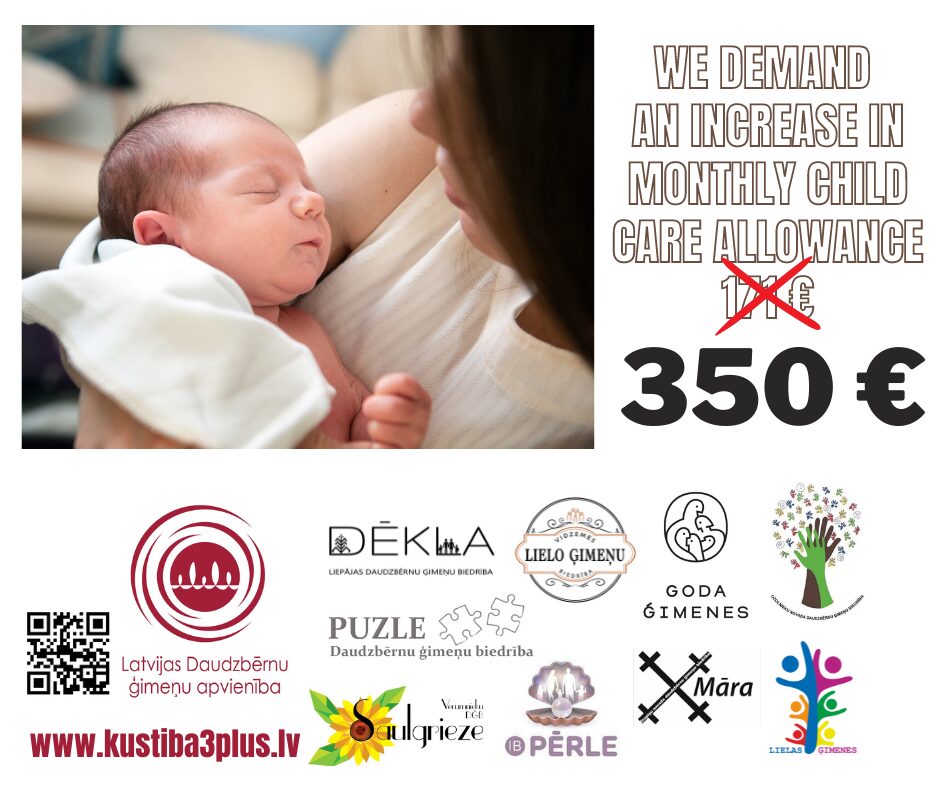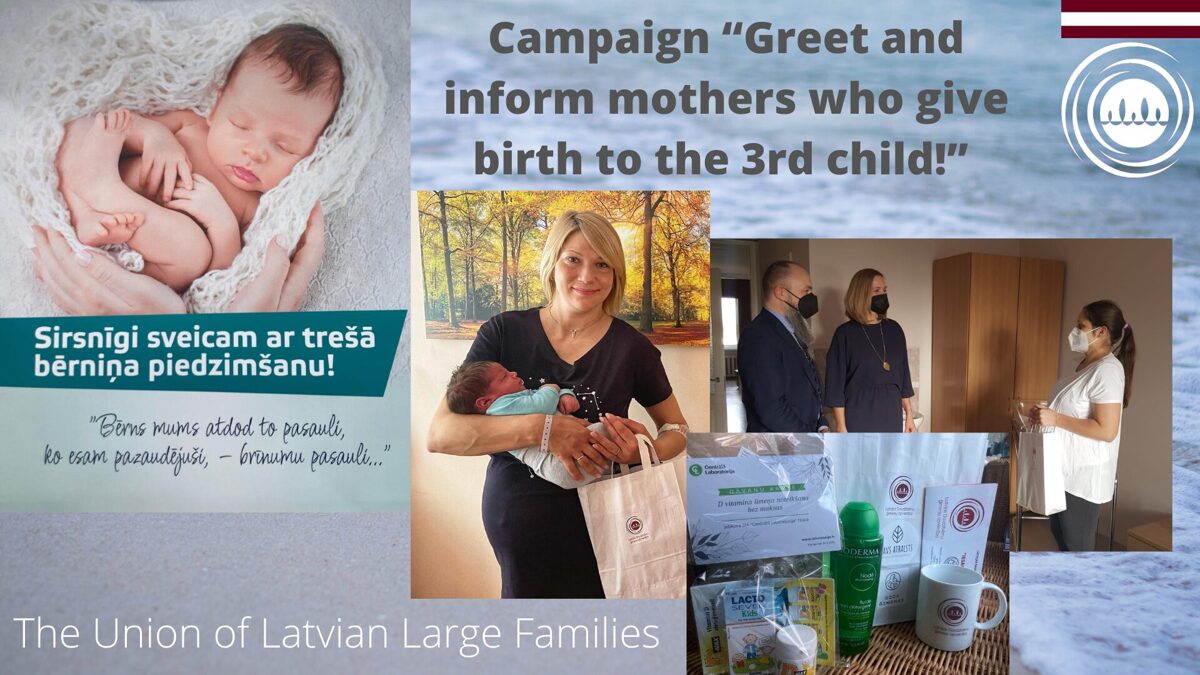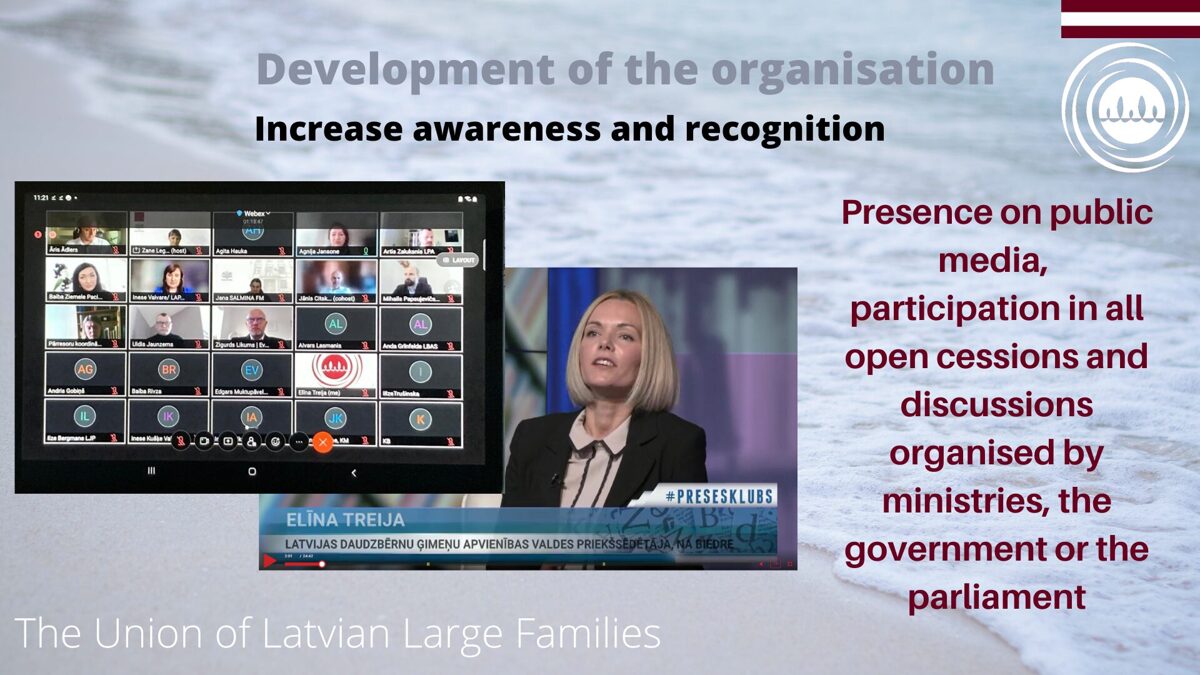
The Union of Latvian Large Families and 9 regional associations of large families ask the Ministry of Welfare to initiate changes in the Cabinet of Ministers’ Regulation No 1609 "Regulations on the Amount of Child Care Allowance and Supplement to Child Care Allowance and Childcare Allowance for Twins or Multiple Children Born in One Delivery, its Review Procedure and the Procedure for Granting and Paying the Allowance and Supplement" (hereinafter referred to as the Regulation), paragraph 2.1, which stipulates that the childcare allowance for a person caring for a child up to one and a half years of age shall be EUR 171 per month.
The Union calls for an increase in the childcare allowance to EUR 350 per month. Arguments for changing the Regulations:
1) The current childcare allowance was set in 2010 with the entry into force of theseRegulations and has never been revised. Paragraph 4 of the Regulations stipulates that the amount of the childcare allowance is reviewed by the Cabinet of Ministers on the proposal of the Minister of Welfare, taking into account the increase in the average gross monthly wage of employed persons as determined by the Central Statistical Office. Since 2010, the average gross wage in the country has risen from EUR 608 to EUR 1 383 (data from the Central Statistical Office for the 6th month of 2022), a 2.27-fold increase. The Union thus justifies the amount of the increase in the childcare allowance indicated in its proposal.
2) Given that the birth rate has fallen from 19,781 live births in 2010 to 17,420 in 2021, there should be an annual saving of at least EUR 4 million in this line item in the basic state budget.
3) During the first year of a child's life, the childcare allowance is the guaranteed minimum income for the parent caring for the child. The allowance must meet at least the guaranteed minimum income for one parent and one dependent. The Law on Social Services and Social Assistance sets the Guaranteed Minimum Income (GMI) threshold at €109 for the first person in the household and €76 for each additional person in the household.
4) Over the last 10 years, fertility has fallen by 45% for women aged 20-24 and by 32% forwomen aged 25-29, which in the long term means delaying having the first child beyond a woman's 30s and having fewer children in the family because of reproductive healthproblems. The most costly consequences for the country will be the decline in the total fertility rate and the decline in the working-age population. One of the reasons for postponing having a family is a lack of social security. The increase in the childcare allowance will reduce the risks of poverty for young parents who do not have social security savings and do not qualify for the parental allowance in the first year of their child's life.
We have asked the Ministry of Welfare to provide estimates of the cost to the basic statebudget of increasing the childcare allowance to EUR 350 per month from 1 January next year, as well as providing information on whether and when it is planned to propose to the Cabinet of Ministers to revise the Cabinet of Ministers Regulation No 1609 "Regulations on the Amount of Child Care Allowance and Supplement to Child Care Allowance and ChildcareAllowance for Twins or Multiple Children Born in One Delivery, its Review Procedure and the Procedure for Granting and Paying the Allowance and Supplement". We are also asking the Ombudsman's Office to help us with advice on taking the initiative.



